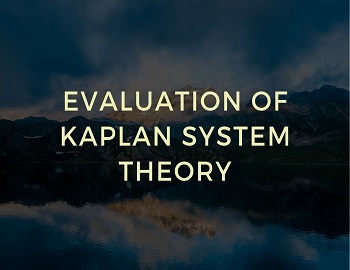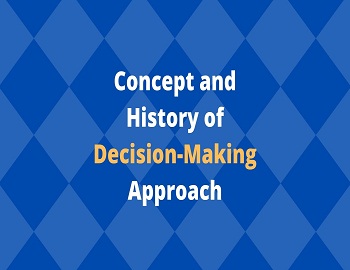Evaluation of Kaplan System Theory:
These are the six models of the international system. According to Stanely Hoffman, “In the case of international relations, I believe that “system theory” is a huge misstep in the right direction- the direction of systematic empirical analysis”.
It is an effort that raises a fundamental question about the proper purpose and methods of the social sciences in general and international in particular. Norman Jacobson has wondered whether the purpose of “scientism” such as systems theory, was to produce systems rather than to achieve an understanding of the social world or as Alfred Cobban says mostly a device for avoiding politics without achieving science”. It is not certain that the models or systems thus constructed contribute to our understanding, for the process “the new scholastic tends…….to conceptualize about concepts regressing even further from empirical reality until he finds the logical consumption of his endeavour in mathematical symbols and other format relations”.
Although Morton Kaplan’s theory is the most significant approach to the study of international politics, it suffers from certain serious defects. Out of his models, only the first two are in actual operation. Thus the balance existed mostly in the eighteenth and nineteenth centuries and the loose bipolar system is working today. But the other four concepts never existed in history. He only predicts the future possibility which is the most difficult task in a theoretical analysis. Thus his systems theory reveals serious defects.
According to Kaplan, the loose bipolar system is likely to be transformed into a tight bipolar system in which there would be no non-aligned nations. But what we have seen today is that non-aligned nations are becoming more and more stable and now many other countries express their desire to follow the non-alignment policy. As such, there is no possibility of the transformation of the loose bipolar system into the tight bipolar system which Kaplan seeks.
Kaplan’s theory also appears to be inadequate because it ignores many concepts which are essential for the completeness of the systems theory. Thus Kaplan does not discuss the forces and factors which determine the behaviour of states. It also lacks the factors which determine the behaviour of states. It also lacks the factors and conditions which lead nations to behave collectively. It also ignores how national interests affect the behaviour of states.
However, in spite of serious defects found in Kaplan’s theory, the fact remains that Prof. Morton Kaplan has made a highly systematic, abstract and most comprehensive approach to the study of international politics. Although there are other writers like Charles McClelland, Stanley Hoffman, Kenneth Boulding and John H. Herz who have contributed a lot to the system theory, it is Morton Kaplan who is regarded as the pioneer of this approach. Kaplan’s system theory in fact provides us rich data to study international politics.









Comments (No)